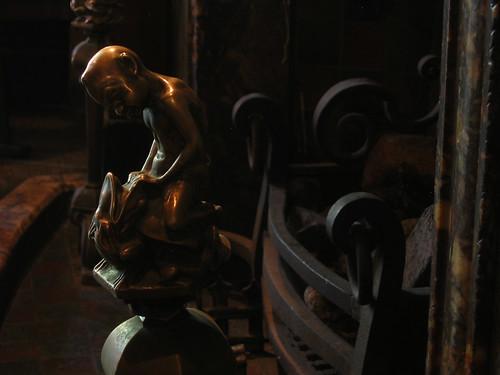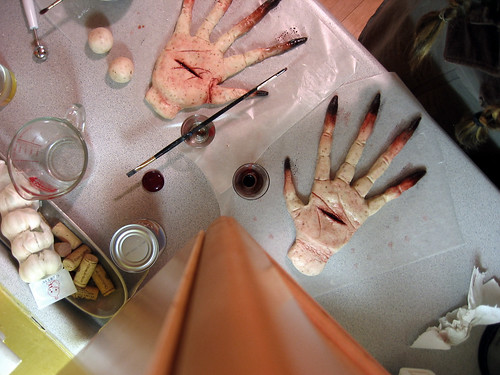
{Photo by rocketlass.}
Those of you who've heard enough about Roberto Bolaño lately should take heart: I've moved Anthony Trollope's Phineas Redux to the top of my stack for this week, and if anything can help me detox from Bolaño's cryptic inventions and haunting weirdness, it's Trollope's general confidence in the things of the world and their proper places.
For now, though, I remain sufficiently dogged by Bolaño that even such relatively innocuous passages as this one from Patricia Highsmith's The Boy Who Followed Ripley (1980), encountered over the weekend, bring 2666 blazing back into my mind:
"You expect to meet the brother? And the detective?" Reeves laughed as if at the word "detective," as he might laugh at anybody whose job it was presumably to track down crime in the world.If you're looking for writings on Bolaño of a bit more substance, you should check out the newest issue of the Quarterly Conversation, which just went online. I'm in there with a review of the new collection of Bolaño's poetry that New Directions has published, The Romantic Dogs, while Quarterly Conversation editor Scott Esposito turns in what is the most perceptive review of 2666 I've seen so far.
The Quarterly Conversation is also giving away a complete set of Bolaño's works in English; click here for details. Oh, and there's plenty of non-Bolaño content as well, including an article on William Gaddis and a piece by Barrett Haycock about freelancing alumni profiles, and what that did to his fiction writing; any writer who's turned out copy for a living will recognize the frustrations (and the occasional pleasures) that Haycock describes.
Speaking of work, you weren't really planning to get anything done at the office today anyway, were you? It's the end of a holiday weekend; you've got to ease back into this job thing; best to just go read the Quarterly Conversation until the coffee kicks in.











